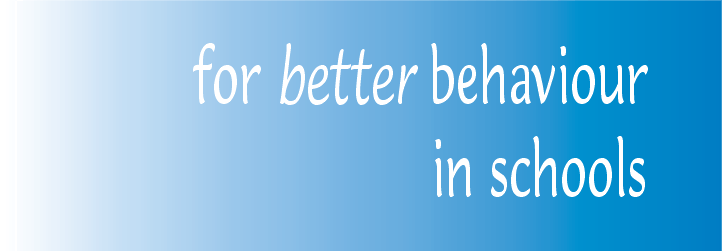

Home | News | Publications/Courses | About | New Outlooks | Checklist | Comment/ideas | Contact
 |
 |
|
Home | News | Publications/Courses | About | New Outlooks | Checklist | Comment/ideas | Contact |
|
| The Principles behind Framework of Intervention | |
| General Principles |
|
1 Children's behaviour is central to the learning
process and is an intrinsic element of education |
|
|
| Practical Principles |
1 Equal opportunity and maximum inclusion 1a An individual's difficulties and needs can vary
over time and in different settings . Thus, organisations and individuals
should avoid 'labelling' children and young people 2 Respect for all 2a Children and their teachers have the right to
have difficulties in behaviour in educational situations addressed without
prejudice 3 Positive approaches to behaviour 3a In all circumstances positive approaches to
behaviour should be preferred 4 Organisational consistency and improvement 4a Organisations should recognise the importance
of having clearly stated and shared values and beliefs which underpin expected
standards of behaviour and quality of relationships 5 Working with children and parents 5a The views and wishes of the child (as taken in
the light of her age and understanding) are of prime importance and must be
heard and taken into account 6 Appropriate and effective agencies 6a Provision for emotional and behavioural
difficulties should be made by the most appropriate agency, in most cases the
mainstream school working in partnership with parents |
|||
|
Home | News | Publications/Courses | About | New Outlooks | Checklist | Comment/ideas | Contact Framework for Intervention is a non-profit making agency of Birmingham City Council's Children, Young Person and Families Department (Children's Services). It is administered within the Educational Psychology Service. (c) Birmingham City Council 1997- |